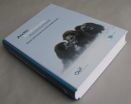(Press-News.org) DETROIT – Enhancing the brain's inherent ability to rebuild itself after a stroke with molecular
components of stem cells holds enormous promise for treating the leading cause of long-term
disability in adults.
Michael Chopp, Ph.D., Scientific Director of the Henry Ford Neuroscience Institute, will present
this approach to treating neurological diseases Thursday, Feb. 13, at the American Heart
Association's International Stroke Conference in San Diego.
Although most stroke victims recover some ability to voluntarily use their hands and other body
parts, half are left with weakness on one side of their body, and a substantial number are
permanently disabled.
No treatment currently exists for improving or restoring this lost motor function in stroke
patients, mainly because of mysteries about how the brain and nerves repair themselves.
But Dr. Chopp and other Henry Ford scientists may have solved some of these mysteries through
experiments at the molecular level identifying and testing components of stem cells.
"Even in older people, the central nervous system is highly plastic, meaning it has a unique ability
to change and rebuild itself," Dr. Chopp explains. "We have demonstrated that this plasticity can be
stimulated to promote neurological recovery after a stroke."
One such therapy involves proteins that shape the developing brain, specifically a type that
releases tissue plasminogen activator, or tPA, which causes axons and dendrites – the brain's neural
cables and communications network – to rewire.
"We have shown that administering tPA in a nasal spray promotes this rewiring and significantly
enhances neurological recovery," Dr. Chopp says.
Dr. Chopp will also speak at the AHA conference about other microscopic material in stem cells
called exosomes that offer a "robust" treatment for stroke's crippling effects.
These blister-like microscopic "bubbles" were once were thought to carry and get rid of "old"
proteins that were no longer needed by the body. However, exosomes were recently found to provide an
essential form of "communication" between brain cells using "packages" sent out by stem cells with
vital directions for gene regulation.
This is done through microRNA, master molecular switches that alter brain cells and promote recovery
from trauma.
Dr. Chopp and his team have shown and confirmed that stem cell therapy works by firing off these
"information bullets."
But they have also shown that neurological diseases can be treated with exosomes alone, separate
from stem cells.
"This approach may be a revolutionary way to successfully treat stroke and many other diseases," Dr.
Chopp says.
INFORMATION: END
Rebuilding the brain after stroke
2014-02-14
ELSE PRESS RELEASES FROM THIS DATE:
Amidst bitter cold and rising energy costs, new concerns about energy insecurity
2014-02-14
February 13,2014 --With many regions of the country braced by an unrelenting cold snap, the problem of energy insecurity continues to go unreported despite its toll on the most vulnerable. In a new brief, researchers at Columbia University's Mailman School of Public Health paint a picture of the families most impacted by this problem and suggest recommendations to alleviate its chokehold on millions of struggling Americans. The authors note that government programs to address energy insecurity are coming up short, despite rising energy costs.
Energy Insecurity (EI) is ...
Harvard scientists find cell fate switch that decides liver, or pancreas?
2014-02-14
Harvard stem cell scientists have a new theory for how stem cells decide whether to become
liver or pancreatic cells during development. A cell's fate, the researchers found, is determined by
the nearby presence of prostaglandin E2, a messenger molecule best known for its role in
inflammation and pain. The discovery, published in the journal Developmental Cell, could potentially
make liver and pancreas cells easier to generate both in the lab and for future cell therapies.
Wolfram Goessling, MD, PhD, and Trista North, PhD, both principal faculty members of the
Harvard ...
Arctic biodiversity under serious threat from climate change according to new report
2014-02-14
Unique and irreplaceable Arctic wildlife and landscapes are crucially at risk due to global warming caused by human activities according to the Arctic Biodiversity Assessment (ABA), a new report prepared by 253 scientists from 15 countries under the auspices of the Conservation of Arctic Flora and Fauna (CAFF), the biodiversity working group of the Arctic Council.
"An entire bio-climatic zone, the high Arctic, may disappear. Polar bears and the other highly adapted organisms cannot move further north, so they may go extinct. We risk losing several species forever," says ...
Pregabalin effectively treats restless leg syndrome with less risk of worsening symptoms
2014-02-13
A report in the Feb. 13 New England Journal of Medicine confirms previous studies suggesting that long-term treatment with the type of drugs commonly prescribed to treat restless leg syndrome (RLS) can cause a serious worsening of the condition in some patients. The year-long study from a multi-institutional research team found that pregabalin – which is FDA-approved to treat nerve pain, seizures, and other conditions – was effective in reducing RLS symptoms and was much less likely to cause symptom worsening than pramipexole, one of several drugs that activate the dopamine ...
Environment change threatens indigenous know-how
2014-02-13
The way indigenous cultures around the globe use
traditional medicines and pass on knowledge developed over centuries is directly linked to the
natural environment, new research has found. This makes indigenous cultures susceptible to
environmental change, a threat that comes on top of the challenges posed by globalisation.
"Traditional medicine provides health care for more than half the world's population, with 80 per
cent of people in developing countries relying on these practices to maintain their livelihood. It
is a very important part of traditional knowledge," ...
Understanding the basic biology of bipolar disorder
2014-02-13
Scientists know there is a strong genetic component to bipolar disorder, but they have had an
extremely difficult time identifying the genes that cause it. So, in an effort to better
understand the illness's genetic causes, researchers at UCLA tried a new approach.
Instead of only using a standard clinical interview to determine whether individuals met the
criteria for a clinical diagnosis of bipolar disorder, the researchers combined the results from
brain imaging, cognitive testing, and an array of temperament and behavior measures. Using the
new method, ...
Most people have access to stroke care, but few get recommended treatment
2014-02-13
Four out of five people in the United States live within an hour's drive of a hospital equipped to treat acute stroke — yet very few get recommended treatment, according to research presented at the American Stroke Association's International Stroke Conference 2014.
Of the more than 370,000 Medicare stroke claims for 2011 that researchers examined:
Only 4 percent received tPA, a drug that can reduce disability if given intravenously within three to four hours after the first stroke symptoms.
Only 0.5 percent had endovascular therapy to reopen clogged arteries.
These ...
Common infections may increase risk for memory decline
2014-02-13
Exposure to common infections is linked to memory and brain function — even if the infections never made you ill, according to research presented at the American Stroke Association's International Stroke Conference 2014.
Researchers found an index of antibody levels caused by exposure to Chlamydia pneumoniae, Helicobacter pylori, cytomegalovirus, and herpes simplex viruses 1 and 2 was associated with worse cognitive performance, including memory, speed of mental processing, abstract thinking, planning and reasoning ability.
"We were very interested in what were the risk ...
Blood clot risk remains higher than normal for at least 12 weeks after women deliver babies
2014-02-13
Women's blood clot risk remains elevated for at least 12 weeks after delivering a baby — twice as long as previously recognized, according to a large study presented at the American Stroke Association's International Stroke Conference 2014.
The chance of a blood clot rises during pregnancy, when platelets and other blood-clotting factors increase. The risk peaks around the time of delivery, but researchers found that afterwards it remained:
10.8 times higher during weeks 0-6;
2.2 times higher during weeks 7-12; and
1.4 times higher (a non-significant rise) during ...
Moderate exercise cuts women's stroke risk, helps offset increase risk from hormone thep
2014-02-13
Women don't need to run marathons or do intense aerobics to reduce their stroke risk. Moderate-intensity exercise — such as brisk walking or playing tennis -- may do the trick, according to research presented at the American Stroke Association's International Stroke Conference 2014.
"I was surprised that moderate physical activity was most strongly associated with a reduced risk of stroke," said Sophia Wang, Ph.D., the study's lead author and professor in the department of population sciences within the Beckman Research Institute at the City of Hope in Duarte, Calif. "More ...

